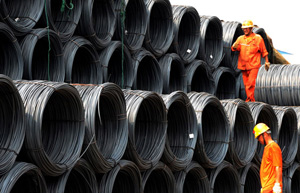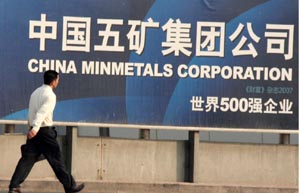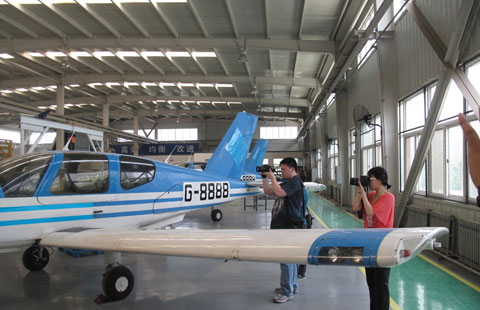E-commerce gives leg-up to ailing steel industry
(Xinhua) Updated: 2014-05-26 11:14Traditionally, standing in the way between steelmakers and end users are multiple hierarchies of distributors, who incurred a cost of around 50 yuan per ton of steel, according to Du Kelin, a manager in charge of the online trading platform of Wuhan Iron and Steel (Group) Corp.
"Transactions made through online trading platforms that bypass distributors can avoid that cost," Du said, noting that even saving 10 yuan per ton means an edge over competitors at the moment.
These platforms not only bring the cost down, but they provided customers with better access to information, allowing them to choose freely in steel companies' online inventories.
However, online platforms are nothing new for the steel industry as many companies experimented with going online a decade ago. But these platforms did not come into their own then as demand easily exceeded supply and steel companies felt no need to seriously explore e-commerce.
"With the industry in a slump and supply outstripping demand, steel traders and customers can now both benefit from e-commerce, providing a better opportunity for these online platforms to expand," said Liu Changqing, CEO of Langesteel.com, an active online third-party trading platform. The company expects to sell 2 million tons of steel this year, compared to 700,000 tons in 2013.
Another company, Zhaogang.com, one of China's biggest online platforms, sold around 60,000 tons of steel in a six-day "shopping carnival" earlier this month. The company targets 3 million tons this year.
|
 |
 |
| Steel traders look to the Internet | Grouppayingnearly$6bforstakeincoppermine |
- SVW upgrades New Polo for new youth
- Feast your eyes on aeroplanes as festival takes off
- Fresh bid to build charging network
- For a drink of clean water, turn on the tap
- Poland's branding in need of polishing
- In London, a center for exellence
- Alibaba leads the pack in name recognition
- China's SME board sees fast growth















